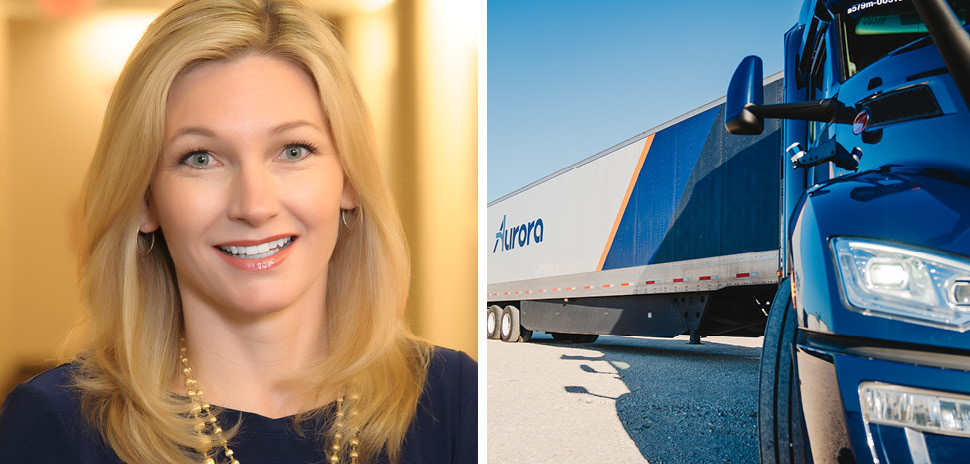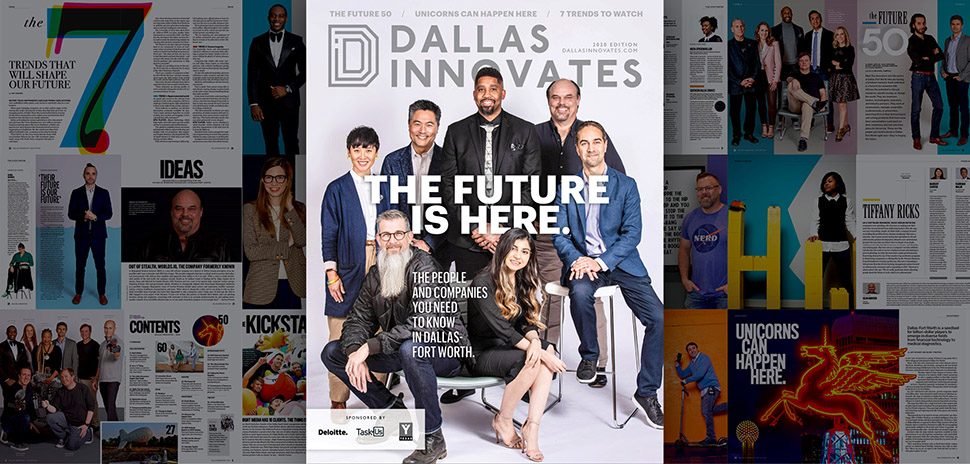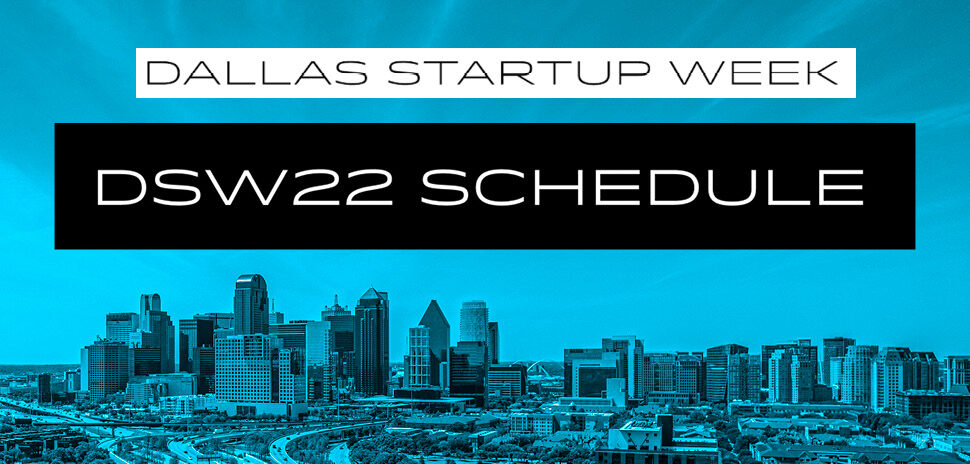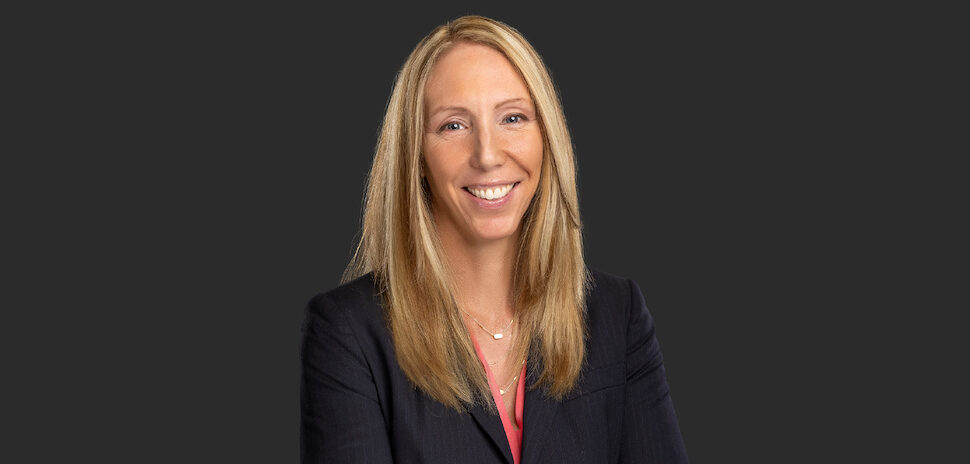Aurora Innovation—a leading autonomous vehicle company based in Mountain View, California and Pittsburgh, Pennsylvania—has appointed Ossa Fisher as its president. Fisher joins the company from Istation, a Dallas-based e-learning company whose platform is used by millions of students worldwide.
Fisher has been Istation’s president and COO since 2019, and will continue to be based out of Dallas near Aurora’s current center for vehicle operations.
Will lead from Dallas as Aurora rolls driverless shipments from DFW
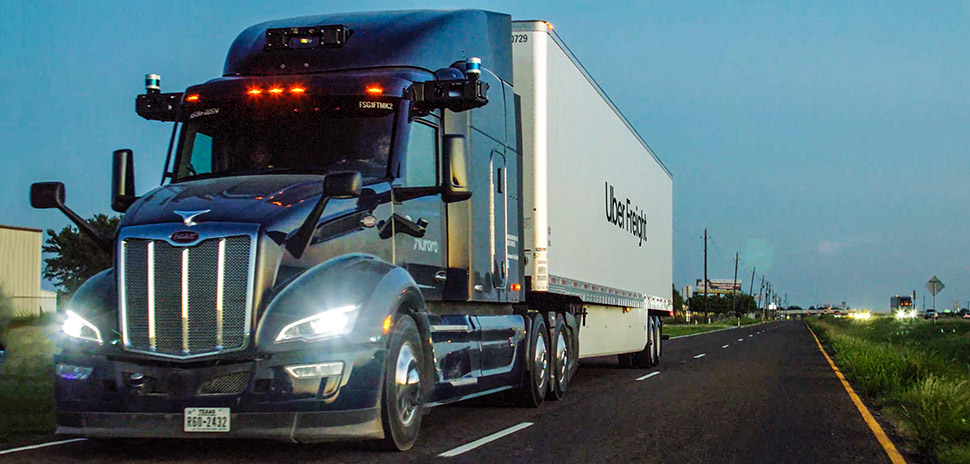
Aurora and Uber Freight aim to unlock autonomous truck capacity for carriers with Aurora Horizon, which will be deployed in the coming years and serve carriers across the Uber Freight platform. [Photo: Aurora]
Fisher is expected to assume her post at Aurora in February.
Aurora has a corporate office in Coppell northwest of Dallas, and terminals for its trucking product, Aurora Horizon, in suburban Palmer south of Dallas and in Fort Worth. The company continues to expand self-driving truck deliveries and shipments on Dallas-Houston and Fort Worth-El Paso runs for customers including FedEx, Uber Freight, Werner, and Schneider. Its local team has expanded from fewer than 20 at the end of 2020 to nearly 120 at the end of 2022, the company told us.
Fisher brings more than 20 years of leadership experience to the company, with expertise in strategy, operations, and business functions across a wide variety of tech organizations. As Aurora focuses on scaling operations and preparing for commercial launch in 2024, it says Fisher will play a pivotal role in advancing both initiatives.
Fisher previously worked at Match Group and Bain & Company
At Istation, Fisher oversaw engineering, product, sales, marketing, customer success, and more. She earlier held other top roles at Istation since joining it in 2015, including two years as chief marketing officer. Previously, Fisher served as SVP of strategy and analytics at Match Group, and she was named a partner at Bain & Company, where she was a leader in the technology, media, and telecom practice.
As president of Aurora, Fisher will report directly to Chris Urmson, the company’s co-founder and CEO. Being based in Dallas will “allow her to be close to the work we do for pilot customers and partners,” the company said.
‘On the cusp of an autonomous breakthrough’
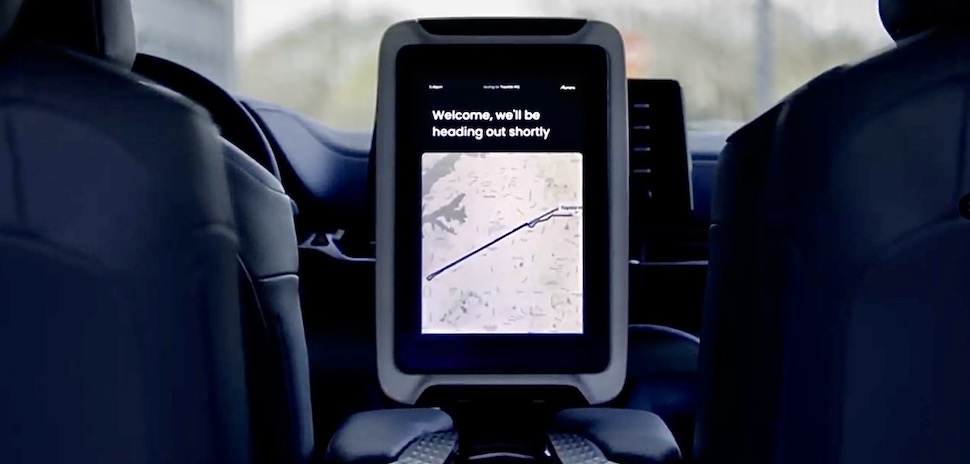
View from the back seat: The passenger screen in the Toyota Sienna S-AM. [Video still: Aurora]
Fisher says Aurora is poised to make a big impact as it advances toward commercial launch.
“We’re on the cusp of an autonomous breakthrough that will transform how people and goods move through the world,” she said in a statement. “Aurora’s vision, commitment to safety, and world-class partnerships have positioned the company to deliver an autonomous trucking product that will define the industry for years to come. I’m incredibly excited and humbled to join the Aurora team and be part of this journey.”
Aurora is working with industry leaders across the transportation ecosystem, including Toyota, FedEx, Volvo Trucks, PACCAR, Uber, Uber Freight, U.S. Xpress, Werner, Covenant, Schneider, and Ryder.
“We’re working closely with partners on the development of next generation trucks designed for autonomous operation and are hauling freight with our partners and customers over 30 times a week,” an Aurora spokesperson told us. “These collaborations are creating a more streamlined, efficient, and flexible freight logistics network, one that’s necessary to help alleviate the strain we’re experiencing across supply chains today.”
Aurora’s Dallas-area moves have included driving Toyota execs toward DFW Airport
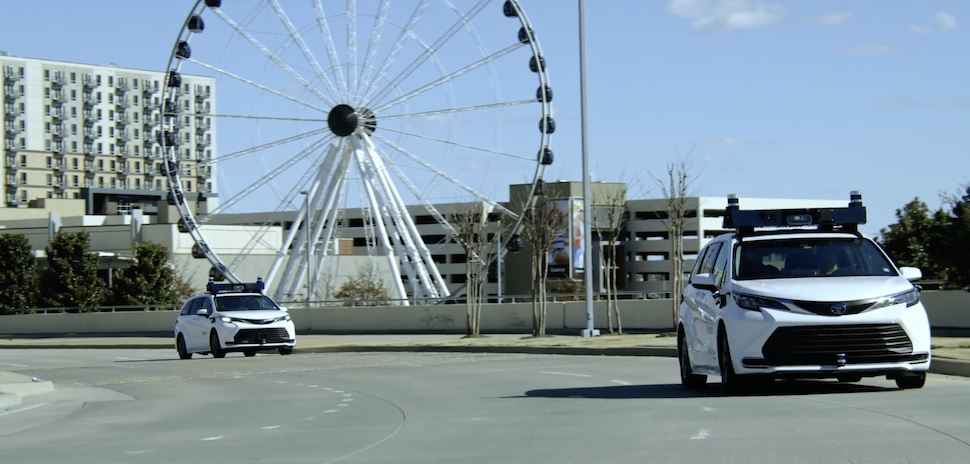
Two Sienna S-AM minivans driving past the Grandscape Wheel in The Colony. [Video still: Aurora]
Besides its driverless trucking runs out of DFW, Aurora has made other moves in the region. Last March, the company capped off a six-month pilot test of its autonomous Toyota S-AM minivans in Dallas-Fort Worth by giving Toyota North America CEO Ted Ogawa and other execs a ride toward DFW Airport (above).
Aurora picked up the Toyota Motor North America execs—including CEO Ted Ogawa—at Toyota’s Plano headquarters, before taking them on an autonomously driven ride in two Sienna S-AM minivans on a portion of the route to DFW Airport.
Why did Aurora pick DFW and Texas as the center for its vehicle operations?
“Texas is home to some of the highest volume freight routes in the country and Aurora-powered autonomous semi-trucks are on the road hauling freight on routes between Dallas, Houston, and El Paso every day,” a spokesperson said. “Texas is also a great environment to validate our self-driving technology, which not only can see long distances, but must operate in high heat, extreme winds, fog, freezing temperatures, and heavy rain. Texas offers a great template for what trucking routes look like nationwide and is an ideal location to mature our technology.
Aurora’s team in the Lone Star State includes those working in operations, logistics, and automotive repair as well as vehicle operators supervising its autonomous deliveries.
The ‘big difference’ in Aurora’s self-driving tech: full autonomy
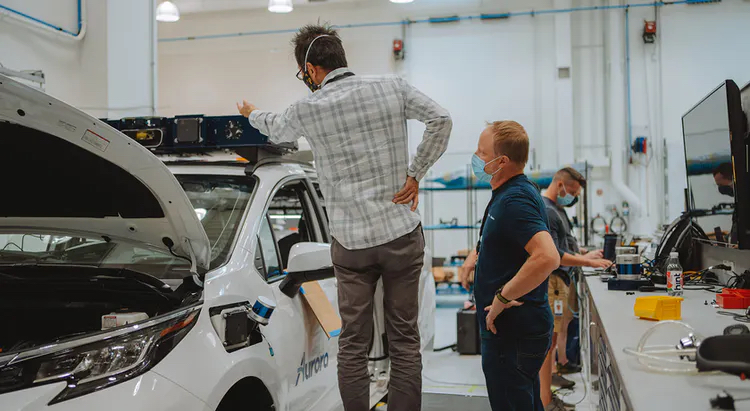
Engineering team working on Toyota Sienna powered by Aurora Driver [Photo: Aurora]
Aurora says that while vehicle operators currently monitor operations in the cabs of its trucking runs, it plans to use its tech to drive trucks without humans on board in the future—aiming to deliver “the economic and societal benefits of safer, more efficient and accessible transportation.”
“There’s a big difference between the driver assistance technology that’s currently in passenger cars, and what we’re building at Aurora,” a spokesperson said. “Driver assistance relies on the presence of an alert and able human driver to take over when the system encounters something it can’t handle or something else goes wrong. From the beginning, we’re developing a technology which is designed to be fully autonomous, which means it will not rely on a human driver to intervene and correct the vehicle’s decision.”
Aurora noted that there are more than 40,000 vehicle deaths each year in the U.S. alone, and says autonomous vehicle technology “has the potential to help dramatically decrease this number.”
“Safety is at the core of how we develop our self-driving technology at Aurora,” the spokesperson added, “from how we manage and run our organization to how we deploy vehicles on the road.”
Aurora Driver Beta 5.0 was released in December
Just last month, the company released Aurora Driver Beta 5.0, the latest version of its integrated hardware and autonomy system. The new system will be implemented in its autonomous trucking fleet in Texas.
Besides its goal of increasing safety on roads, Aurora also aims to address a national shortage of truck drivers.
“The rising demands of e-commerce also place pressure on drivers to meet deadlines, increasing the likelihood that one of the most fatal jobs today will only become more dangerous,” the spokesperson said. “Additionally, today, the freight industry is short 80,000 truck drivers and by 2028, we expect that number to double. This impacts our ability to efficiently move goods from point A to B. Through autonomous driving technology, we have the ability to help make roads safer and transform the future of transportation and logistics.”
Quincy Preston contributed to this report.
![]()
Get on the list.
Dallas Innovates, every day.
Sign up to keep your eye on what’s new and next in Dallas-Fort Worth, every day.

